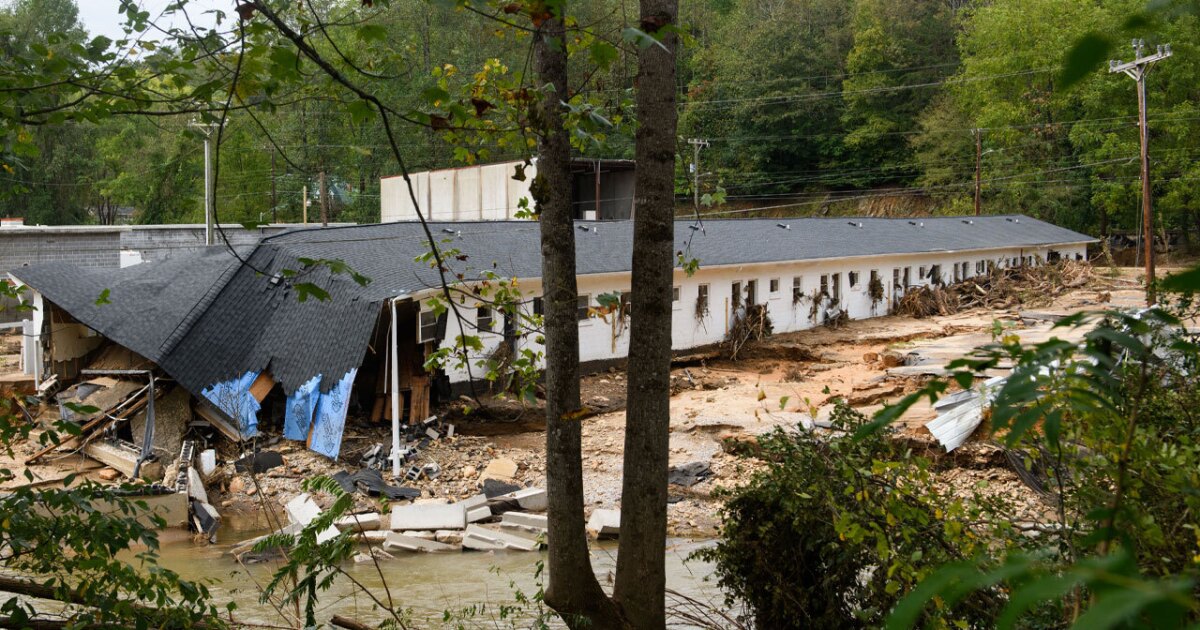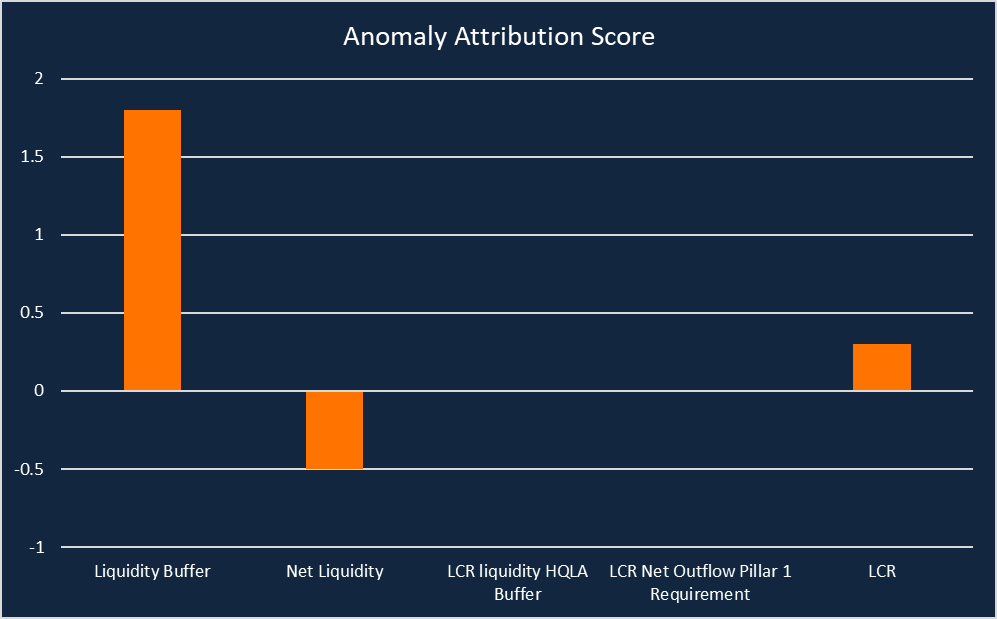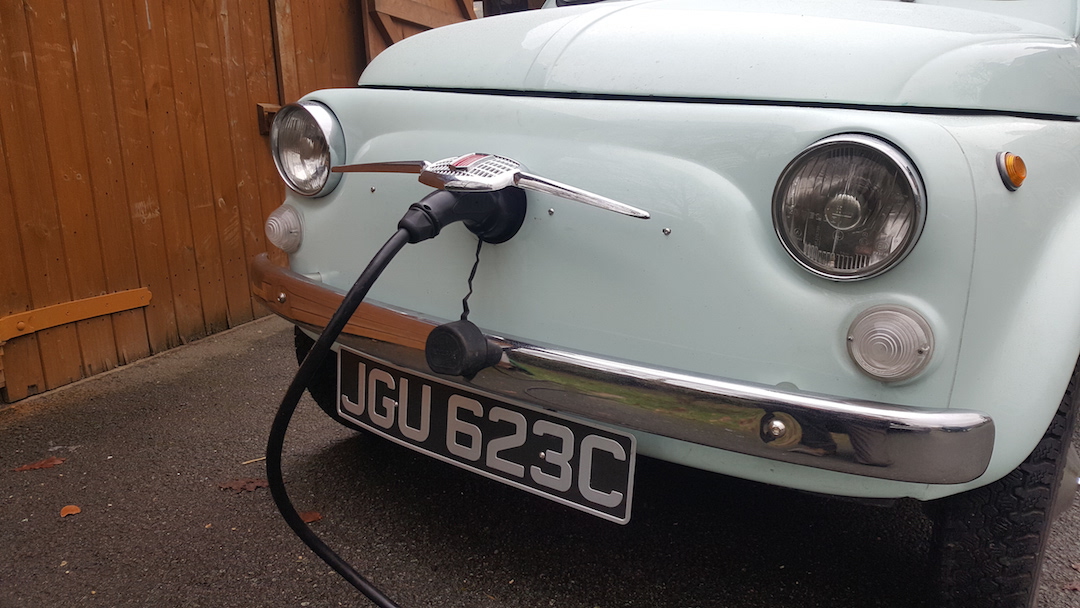Melissa Sue Gerrits/Getty Images
After Hurricane Helene rocked the Southeast with power outages and massive levels of destruction, banks have been assessing the damage, accounting for employees, working to restart operations and trying to communicate with clients.
Financial institutions that operate in Western North Carolina, Upstate South Carolina and parts of Florida, Georgia and Tennessee said Monday that they have been focused on ensuring their workers are safe, and on trying to help the communities that were devastated by floods and mudslides.
In areas around Asheville, North Carolina, where there have been at least 40 storm-related deaths, Helene was especially ruinous, knocking out power, water, gas and communications, and destroying scores of roads, including major highways.
“The devastation is worse than it appears on television,” Peter Gwaltney, president and CEO of the North Carolina Bankers Association, told American Banker in an email Monday. “Videos and photos don’t adequately capture it.”
Banks with a large presence in the area, including First Citizens BancShares, Truist Financial, Bank of America, HomeTrust Bancshares and First Bancorp, faced similar challenges over the weekend and on Monday, with employees who didn’t have power or water and branch locations covered in debris.
Mempis, Tennessee-based First Horizon, which operates a handful of branches across Western North Carolina, spent Monday getting supplies and relief to its employees, according to Mid Atlantic Regional President Sam Erwin. He said that in his native Greenville, South Carolina and the neighboring county, many businesses and homes have been without power since Friday.
It’s a more severe story in Western North Carolina, Erwin said. He wasn’t able to get in touch with the bank’s Asheville manager for two days due to poor cell coverage and power issues. On Monday, an Asheville banker walked 45 minutes to get enough reception to talk on the phone, Erwin said.
First Horizon’s location in Boone, North Carolina — a mountain town about 100 miles north of Asheville — was flooded with about a foot of water, and it will probably be three or four months until the branch is back in operation, Erwin said. In the meantime, First Horizon plans to get one or two full-service mobile branches up and running, he said. He expects three branches in Asheville to be open in some capacity later this week.
The isolation and inability to travel into the region made it difficult for banks to contact employees and assess damages to offices and other facilities. As of Monday afternoon, all roads in Western North Carolina were still considered closed, according to the state’s Department of Transportation website.
Rusty Edwards, the Asheville regional executive for the $12.1 billion-asset First Bank, said in an email on Monday that he spent the day driving around the county to meet with employees and city and county officials.
He said there was little to no cell service, very little electricity and no water services available, adding that gas prices are at a premium, with people waiting two to three hours to fill their tanks. First Bank, which is based in Southern Pines, North Carolina, has about 14 branches around Asheville, and is working to get local branches up and operating.
“The safety of our employees is paramount,” Edwards said. “Many have been impacted personally or have had family members impacted by the devastation throughout the area. Homes and cars were flooded, there’s spotty power and very little internet connectivity. We’ve accounted for everyone, which was a huge relief.”
Edwards said the bank is now working on how to support its workers, customers and communities.
In recent days, Truist Financial has reached out to more than 13,000 employees who reside in the storm’s path, and it continues to try to get in touch with those employees who have not yet responded, the company said Monday. The North Carolina company, which operates across the Southeast, said it will keep trying to make contact “until all teammates are confirmed safe.”
While Truist is already delivering bottled water, meals and other sanitary supplies in places such as Greenville, South Carolina; Augusta, Georgia; and St. Petersburg, Florida, it hasn’t yet been able to get to Asheville, due to the continued road closures.
“We expect to deliver humanitarian aid into Western North Carolina once the area is deemed safe and opened to recovery efforts,” the company said.
Truist has about 600 employees in the multicounty North Carolina region that’s been defined by the Federal Emergency Management Agency as a disaster area, the company said. About half of its 34 branches in that area are currently closed due to power outages.
Erwin said First Horizon’s experience with disasters in Louisiana, Florida and Texas has helped the bank prepare for events like Helene.
“I don’t know that I fully understood that until I was right in the middle of a disaster,” Erwin said. “So we have a team that’s always ready, and it starts with really supporting our associates, making sure that our associates have food and water and access to fuel.”
Erwin said on Monday that a fuel and supply truck was stationed in Greenville, Tennessee, to provide gas, water, batteries, tarps and other relief items to First Horizon employees, and on a limited level, to the community as well.
Erwin was planning to drive to Asheville on Tuesday to assess the situation in person, provide fuel and supplies to First Horizon employees and assess where further assistance is most needed.
The North Carolina Bankers Association, which has 84 members, hosted a Zoom call on Sunday afternoon with bankers to get updates on current conditions. “Communication in an event like this is critical,” Gwaltney told the bankers on the call. The group was scheduled to hold another call Monday evening.
During Sunday’s call, Bob Washburn, president and CEO of LifeStore Bank in West Jefferson, North Carolina, said that a major focus was on trying to take care of the bank’s staffers.
“Probably half of our employees still don’t have power, don’t have water,” Washburn said during the Zoom call. “So we’re renting some space where they are going to take showers.”
Adam Currie, president of First Bank, said during the same Zoom call that at one branch in South Asheville, a front loader that was being used to clear the site picked up so much debris that it broke.
At HomeTrust Bank, Chief Operations and People Officer Megan Pelletier said the bank had reserved blocks of hotel rooms in Charlotte and Greenville for employees who were willing and able to travel, after the bank’s operations center in Asheville lost access to running water.
“We’re putting them up, and they’ll work from those locations, at least for the next week or so,” Pelletier said.
Another problem at branches in the most devastated areas, as of Sunday: cash shortages. Gwaltney, of the North Carolina Bankers Association, told bankers on the call that his group would work with them to arrange for escorts to allow for deliveries of cash.
First Horizon’s Erwin said Monday that the bank has worked with some clients to make payroll and perform similar tasks, but clients’ key need is cash.
Many stores that are open are only accepting cash, so Erwin said First Horizon is trying to ensure that customers, and community members more broadly, can access cash through its locations and mobile branches. Another complication is that much of the cash was soaked during the hurricane, though “the Federal Reserve will take back wet cash, we’ve found,” Erwin said.
But, he said, “the most important thing is, we’re all in this together as a banking community.”
Amid the immense damage, a number of banks have committed donations to help disaster relief organizations. Truist’s charitable arm, Truist Foundation, said it will donate $1 million to relief and recovery in communities most affected by Helene.
“Many of the communities we serve are experiencing historic and catastrophic flooding and millions are still without power and access to everyday essentials,” Lynette Bell, president of Truist Foundation, said in the release. “We are committed to putting our purpose into action with additional funds to help those in impacted communities get connected — digitally and physically — as soon as possible.”
Bank of America is also committing $1 million to support those impacted by the hurricane. The first $500,000 will be deployed now to the American Red Cross, and the remaining $500,000 will be allocated as needs continue to be identified.
San Antonio, Texas-based USAA announced Saturday that it was donating $1 million to American Red Cross, Team Rubicon and Feeding America in efforts to help communities impacted by Helene.
Publisher: Source link










